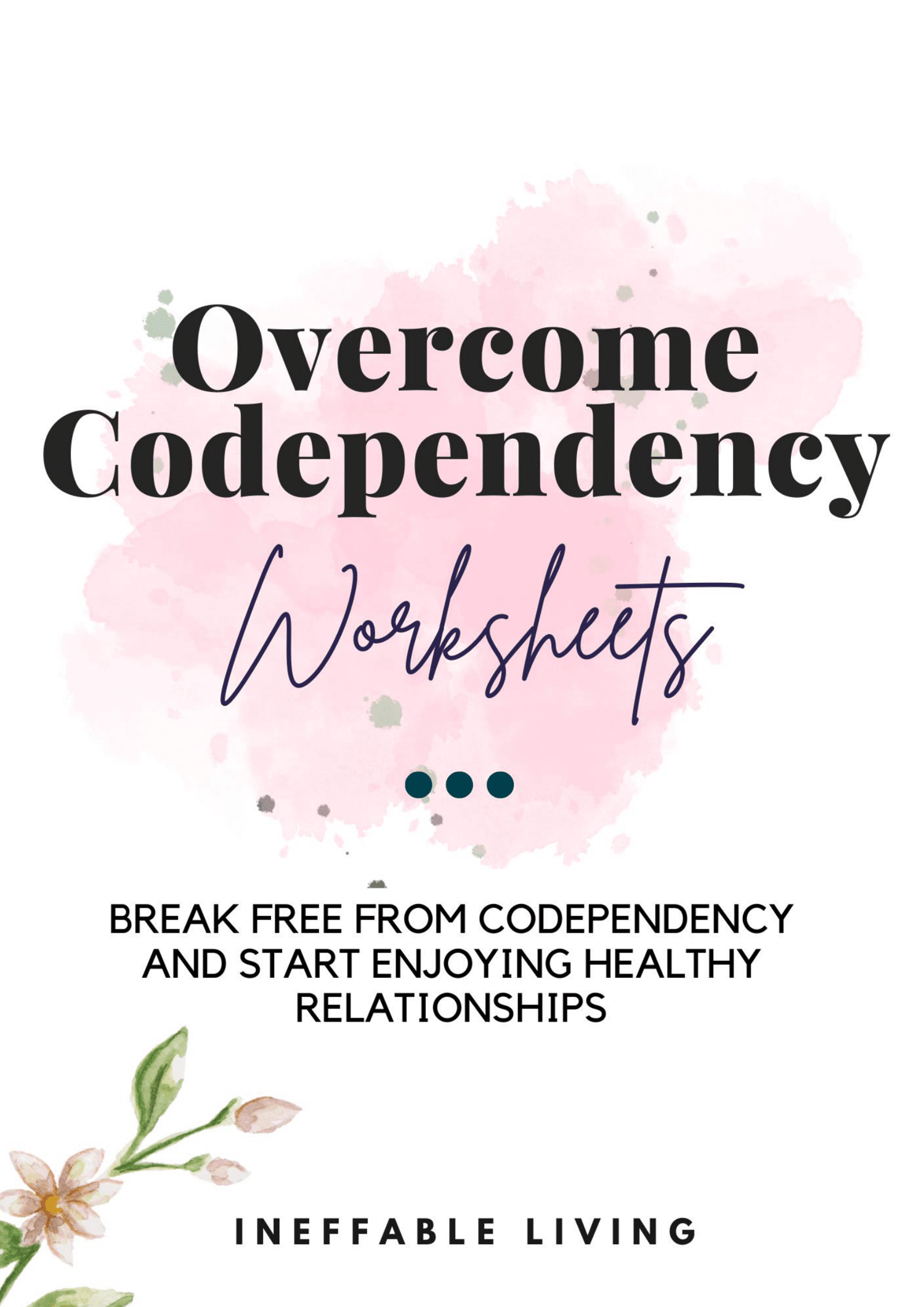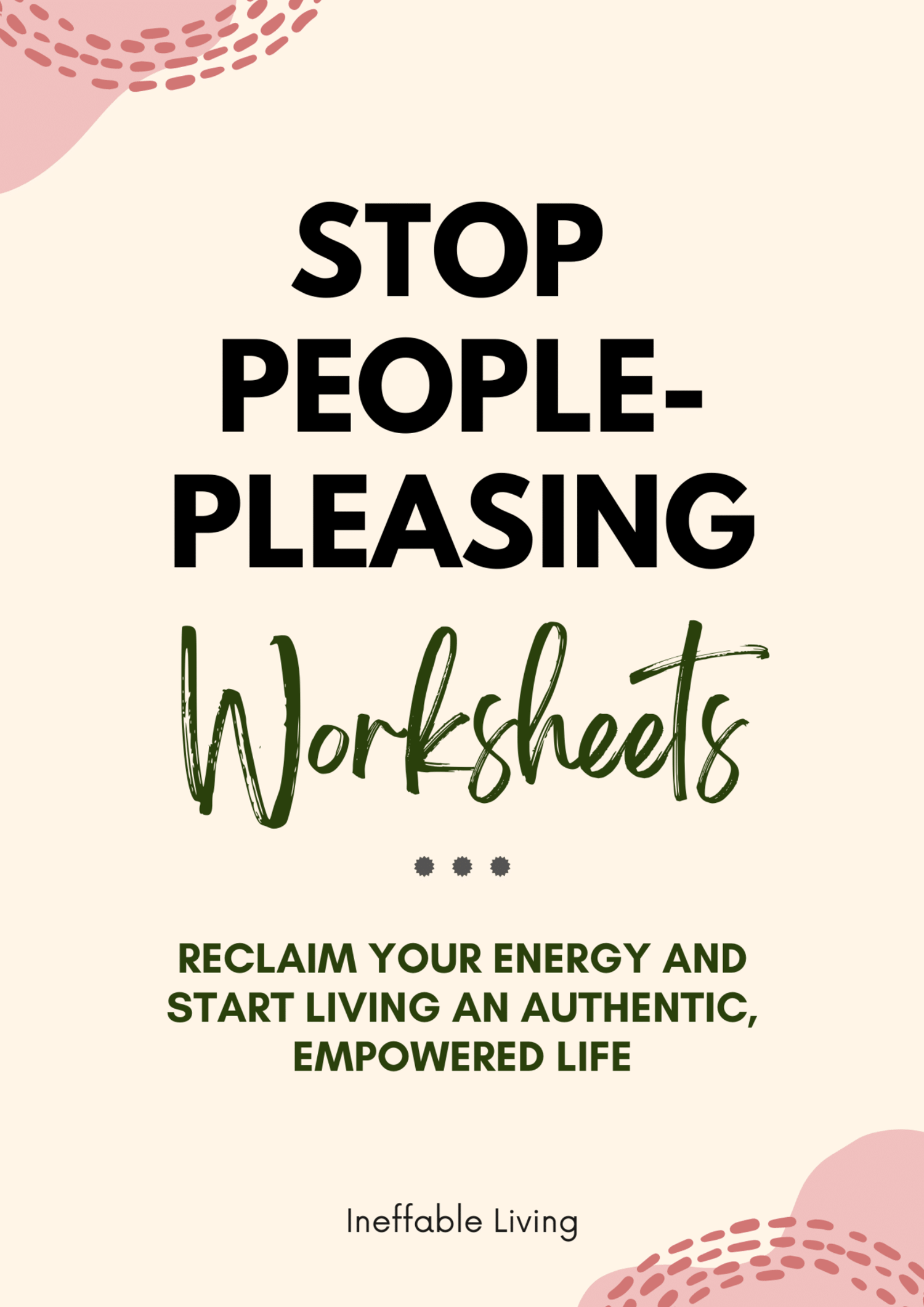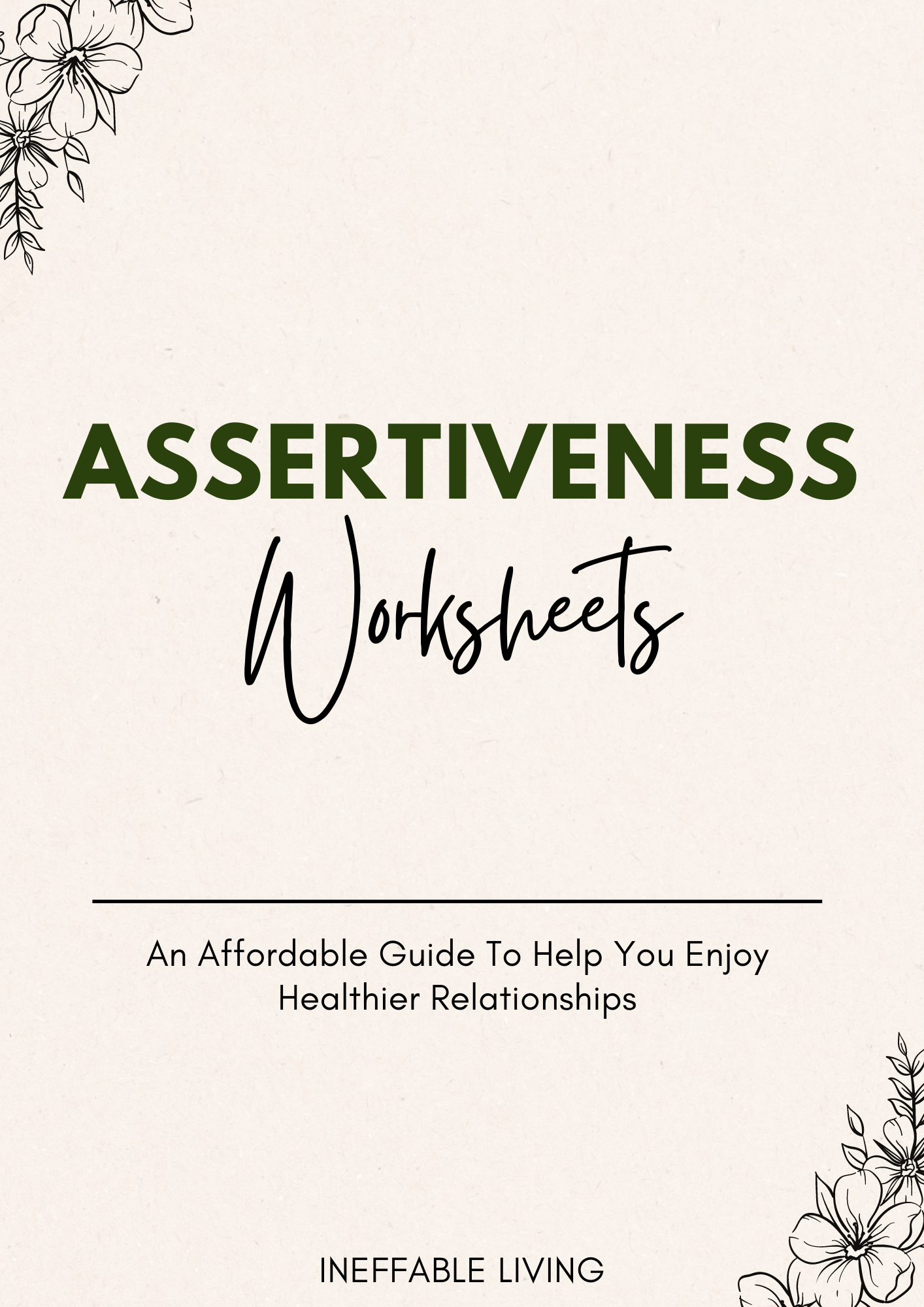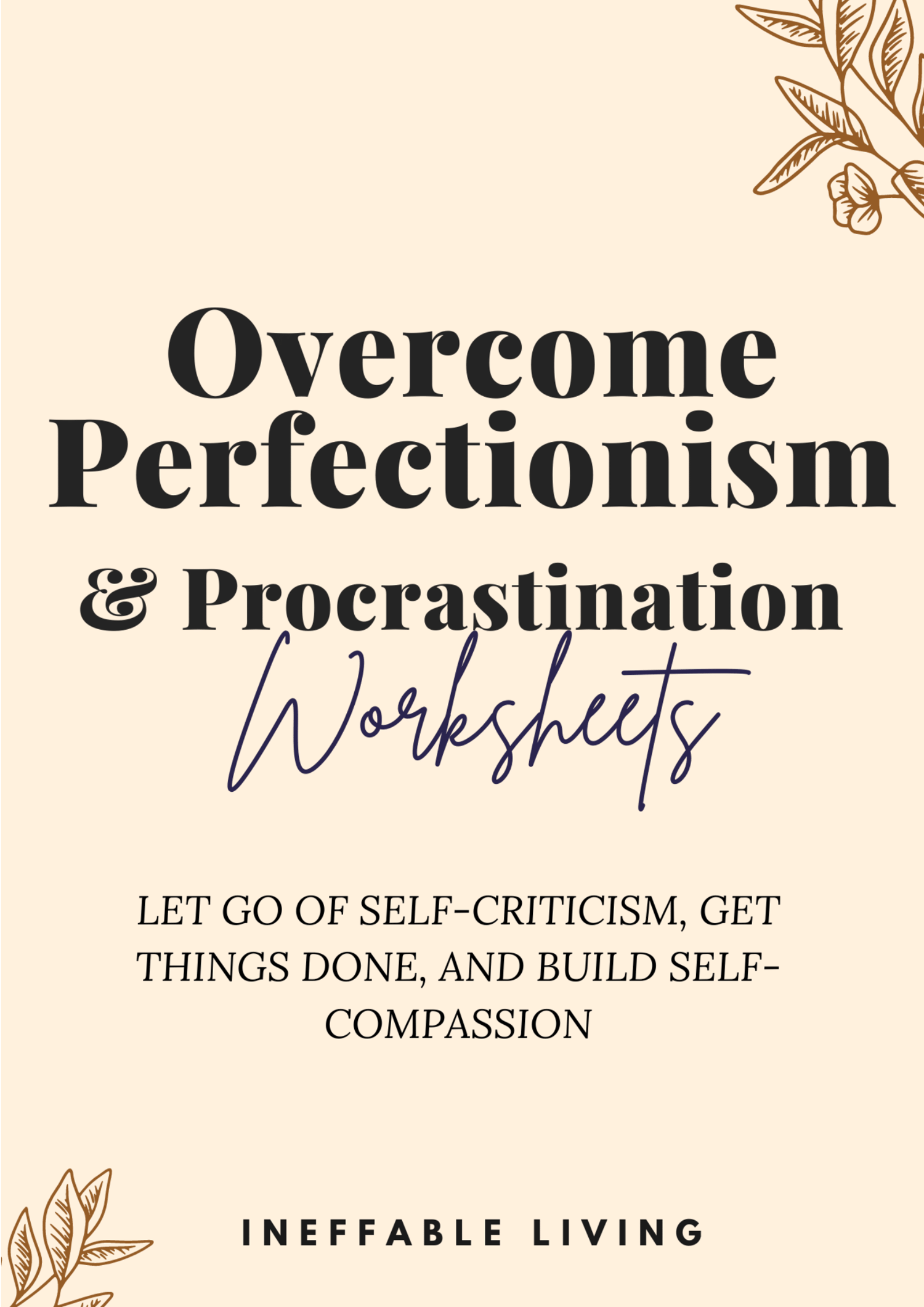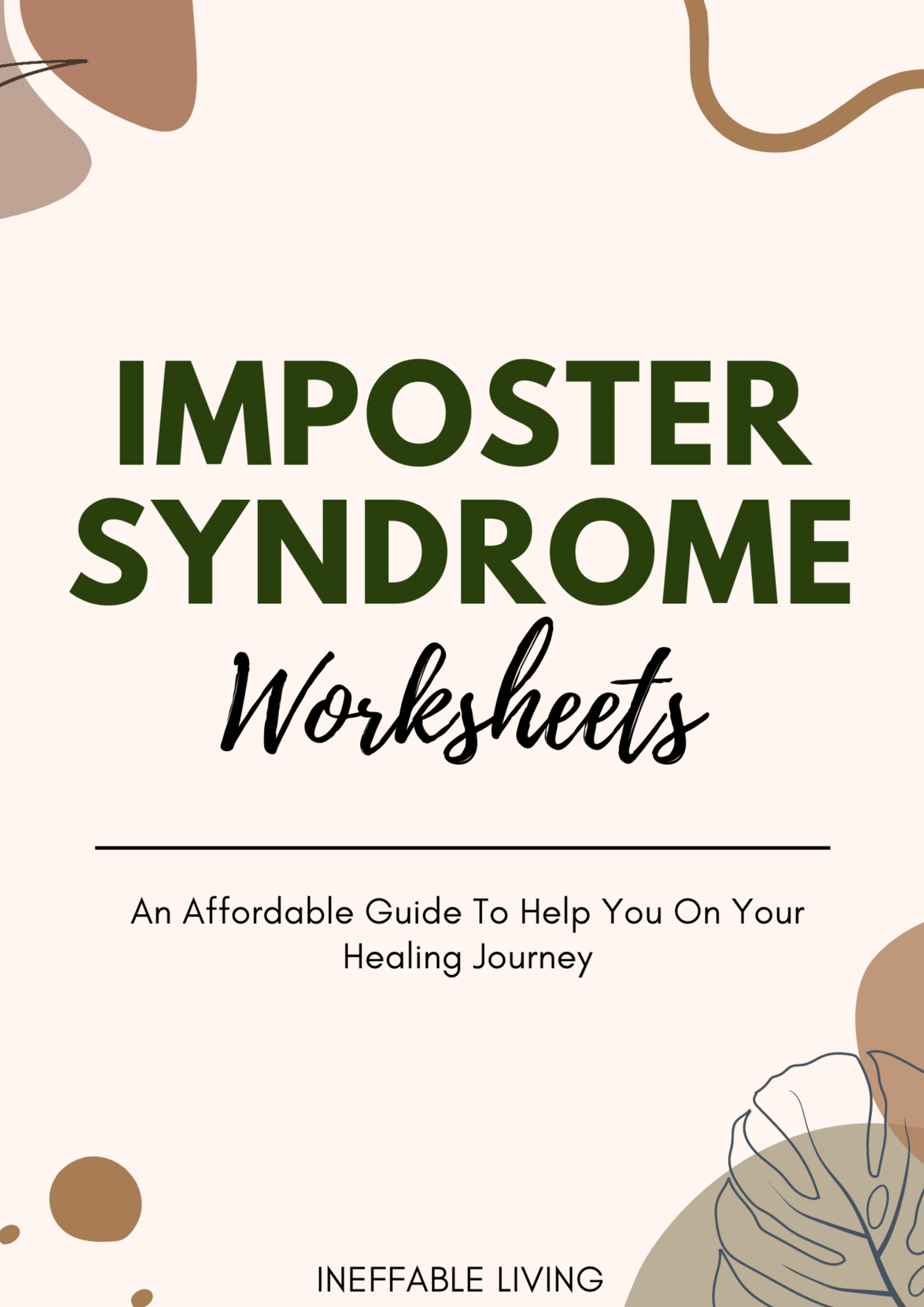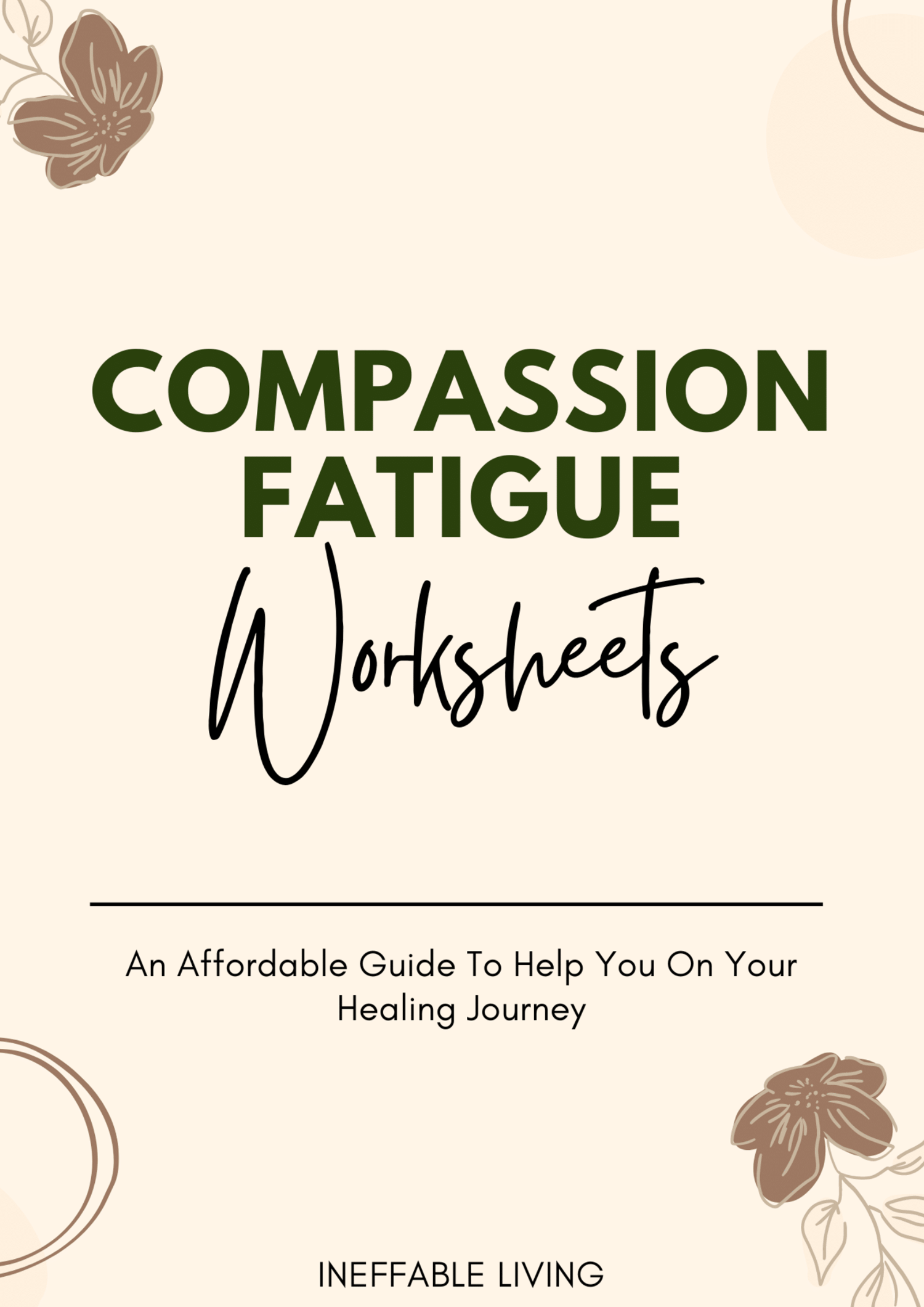If your needs always come last… if you feel responsible for everyone else’s emotions… if your sense of worth depends on being needed — you may be stuck in a cycle of codependency.
Codependency isn’t just “being too nice.” It’s a deeply rooted survival pattern built around people-pleasing, emotional caretaking, and self-neglect. And over time, it leaves you feeling resentful, invisible, and emotionally drained.
But it doesn’t have to stay that way. These codependency recovery worksheets are here to help you reconnect with your identity, break toxic patterns, and build relationships rooted in mutual respect — not sacrifice.
- What Codependency Really Looks Like
- 1. Codependency Worksheets
- 2. Stop People-Pleasing & Set Boundaries Worksheets
- 3. Assertiveness Worksheets
- 4. Overcome Perfectionism & Procrastination Worksheets
- 5. Imposter Syndrome Workheets
- 6. Compassion Fatigue Worksheets
- How Worksheets Support Codependency Recovery
- This is for You If…
- It’s Time to Reclaim Yourself
What Codependency Really Looks Like
Codependency shows up in ways that are often praised or misunderstood. You might:
- Feel guilty when you say no
- Constantly put others’ needs before your own
- Struggle to make decisions without someone else’s input
- Feel anxious or empty when you’re not “helping” someone
- Stay in one-sided or toxic relationships out of fear or obligation
- Believe your worth is based on how much you give
It’s not your fault. Codependency often forms in childhood or past trauma where love and safety felt conditional.
1. Codependency Worksheets
Break the cycle of overgiving and emotional enmeshment with tools to reclaim your identity and meet your own needs.
2. Stop People-Pleasing & Set Boundaries Worksheets
Learn how to say “no” without guilt and prioritize your well-being without fear of disappointing others.
3. Assertiveness Worksheets
Find your voice, express your needs clearly, and build confidence in standing up for yourself in any situation.
4. Overcome Perfectionism & Procrastination Worksheets
5. Imposter Syndrome Workheets
Challenge self-doubt, own your achievements, and stop feeling like a fraud in your personal or professional life.
6. Compassion Fatigue Worksheets
Support your mental health while caring for others by learning to balance empathy with emotional boundaries.
How Worksheets Support Codependency Recovery
Healing codependency means learning to center yourself without guilt — and worksheets give you structured space to do just that.
They help you:
- Recognize codependent behaviors and where they started
- Identify your emotional needs (maybe for the first time)
- Set and maintain boundaries without apology
- Reclaim your voice and preferences
- Develop interdependence instead of enmeshment
- Process guilt and fear around being “selfish” or disappointing others
These worksheets aren’t about becoming cold or distant — they’re about becoming whole.
This is for You If…
- You lose yourself in relationships
- You feel resentful but afraid to speak up
- You confuse love with self-sacrifice
- You crave healthy, mutual connections
- You’re ready to choose you — without guilt
You don’t have to earn your worth by fixing, saving, or overgiving. You already matter.
It’s Time to Reclaim Yourself
Codependency recovery isn’t selfish — it’s sacred. The most loving thing you can do for others is to live from a place of wholeness, not depletion.

Read Testimonials –> HERE
FAQs
Can I use the worksheets with my therapy clients?
Absolutely! The worksheets are meant for both, personal and professional use.
The worksheets are copyrighted so you can’t resell them or upload them publicly online. But you can share them with your clients.
Can I make changes to the files before handing them down to my clients?
Absolutely! You can convert your PDF files to word documents and make changes using free tools like pdf2doc.com.
How do I know if these worksheets are right for me?
These worksheets are perfect for anyone who needs an affordable, yet effective strategies to help them increase their self-awareness and work on their own issues – alone or with their therapist.
These worksheets are not a one-size-fits-all approach and are in no way meant to imply that change is as one-dimensional as a worksheet.
So choose the techniques and suggestions that apply to you and tailor the exercises in ways that will be helpful to you.
Can I use these worksheets on my own or should I seek professional guidance?
These worksheets are designed to be helpful on their own. However, seeking professional guidance from a mental health professional can increase their effectiveness.
How do I use mental health worksheets effectively?
1. Set aside dedicated time: Find a quiet and comfortable space where you can focus on yourself without distractions. Treat this as valuable self-care time, just like you would for any other important appointment.
2. Choose the right worksheet: There are numerous worksheets available, each offering unique exercises and prompts. Consider your specific needs and goals. Are you looking to enhance self-awareness, manage stress, or improve your relationships? Select a worksheet that aligns with your current focus.
3. Read instructions carefully: Take a moment to fully understand the purpose and instructions of the worksheet. Clarify any questions you may have before proceeding.
4. Engage in self-reflection: Set pen to paper and let your thoughts flow. Don’t worry about perfection or judgment – this is your private space to express yourself authentically. Be honest with yourself and explore your emotions, thoughts, and experiences without restraint.
5. Reflect on your insights: After completing the worksheet, take some time to reflect on what you have learned about yourself. Consider any patterns or triggers that impact your mental well-being. Identify areas where you can implement positive changes or coping strategies.
6. Incorporate your insights into daily life: The true value of mental health worksheets lies in applying your newfound awareness and insights to your everyday life. Consider how you can integrate these insights into your relationships, self-care routines, and overall well-being.
When should I see a therapist?
These worksheets are designed to help you better understand yourself, your distress, and your difficulties.
You can use it in conjunction with therapy or as a stand-alone guide to manage your distress.
These worksheets can be considered a low-intensity intervention. They’re perfect for those who are struggling with mild to moderate issues.
In mental health, mild to moderate symptoms are those that are severe enough to be distressing to you, but moderate enough that you can still manage most of your daily activities.
If you feel very overwhelmed by any of the exercises in these worksheets, this might be a sign that your symptoms are too severe for you to do the work by yourself.
A therapist will help you at your own pace and provide support and encouragement throughout the process.
Do you have more questions? Check this page –> FAQs
